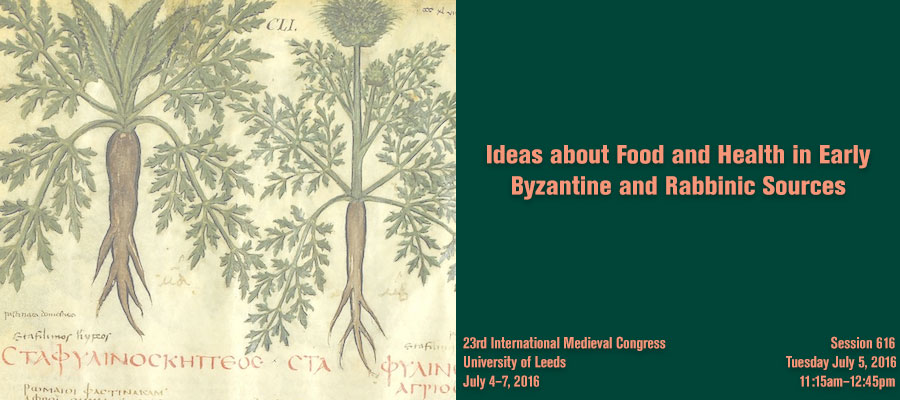Participants
Lennart Lehmhaus (Free University, Berlin - SFB980/A03)
The Dynamis of Diet and Regimen – Talmudic Appropriation and Domestication of a Genre?
Diet and Regimen formed a subfield of Graeco-Roman medicine and everyday life. Most Jews, despite occasional critique of or resistance against “Greek wisdom”, participated actively in Greco-Roman social life of which most realms were covered in halakhic and ethical discussions of the rabbis. This paper will explore the ways in which rabbinic traditions dealt with their contemporaries’ knowledge about digestion, proper nutrition and care of the body as prerequisites for a healthy constitution. How did the rabbis “domesticate” diaita touching upon religious ideas of kashrut (Jewish dietary rules) and purity laws through particular literary or discursive representation?
Matteo Martelli (Humboldt University, Berlin - SFB980/A03)
Co-organizer and presenter
‘Abnormal’ Forms of Appetite in Aetius of Amida
The paper will explore how ‘pathological’ forms of appetite are depicted in book IX (on stomach diseases) of Aetius of Amida’s Byzantine medical encyclopaedia, usually known as Libri medicinales (VI century AD). Three chapters in particular – chaps. 6, 19, and 20 (whose Greek text will be revised according to the most valuable MSS) – deal with ravenous hunger (boylimos), loss of appetite (anorexia), and canine appetite (kynōdēs orexis): they represent key sources for understanding how Byzantine physicians explained and treated these pathologies and to what extent they selected, reworked, or even revised the previous medical tradition.
Caroline Musgrove (Queen’s College, Cambridge)
Moderator
Christine Salazar (Humboldt University, Berlin - SFB980/A03)
Co-organizer and presenter
Paul of Aegina on the Properties of Fruit and Vegetables; Tradition and Creativity
In the first book of his medical encyclopaedia, the 7th-century author Paul of Aegina addresses matters regarding health - diaita in the widest sense, including nutrition. His discussion of all kinds of foodstuffs provides insights into both medical ideas about food and the kind of diet that his contemporaries had. (His work was a practical handbook, and it would not have made sense to describe the properties of fare that no one ate.) Besides, these chapters show Paul as an eclectic user of his sources, far removed from the cliché of the Byzantine compiler mindlessly copying texts.
